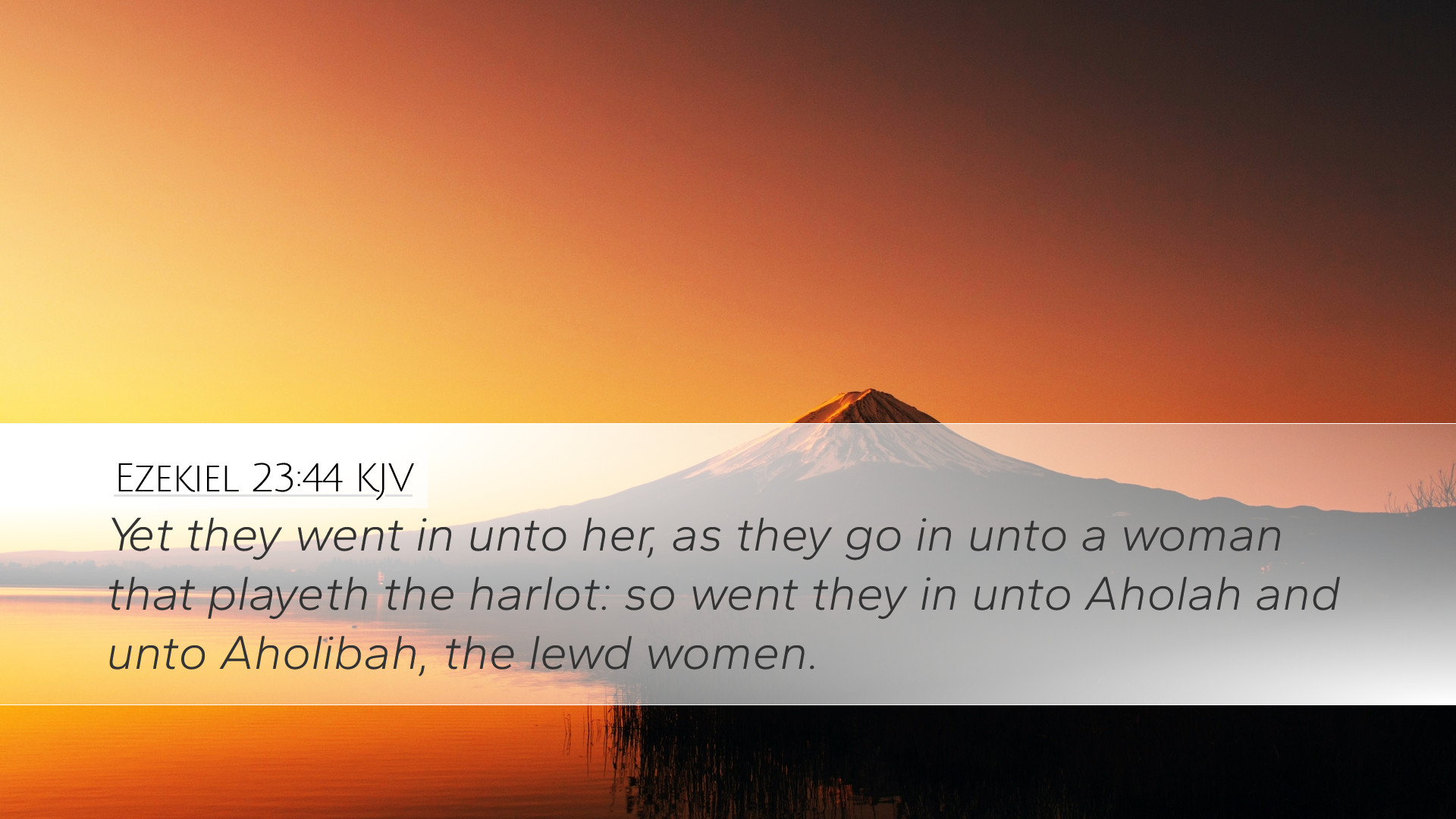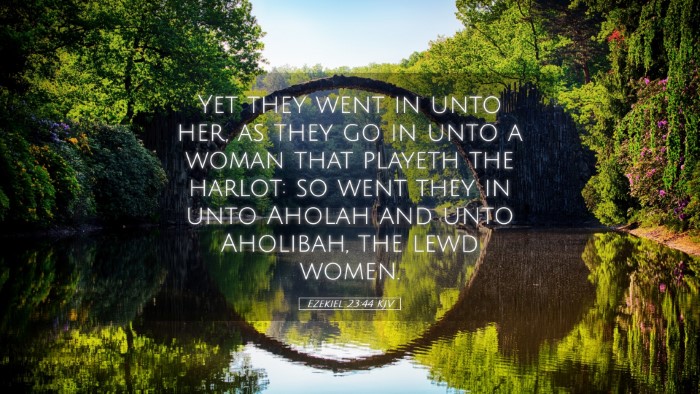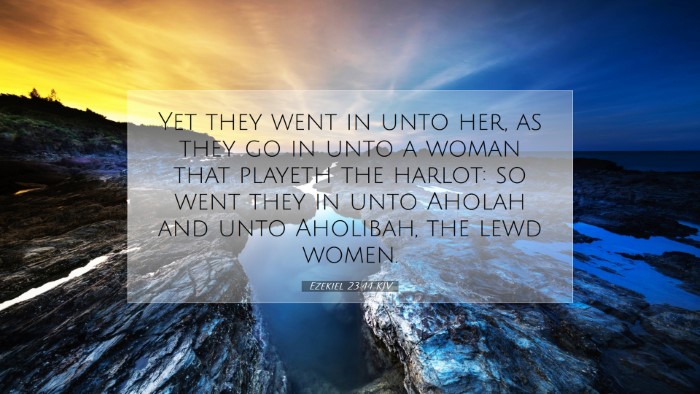Bible Commentary on Ezekiel 23:44
Ezekiel 23:44 states: "Yet they went in unto her, as they go in unto a woman that plays the harlot: so went they in unto Oholah and unto Oholibah, the lewd women." This verse captures God's judgment upon the corrupt practices of Israel and Judah, personified as the two sisters Oholah and Oholibah. The commentary below presents insights from various public domain sources, providing a comprehensive understanding suitable for pastors, students, theologians, and scholars.
Contextual Overview
The chapters surrounding this verse (Ezekiel 23) are a vivid and dramatic portrayal of the unfaithfulness of Israel and Judah. Ezekiel uses the allegory of two sisters, Oholah (representing Samaria) and Oholibah (representing Jerusalem), to illustrate their spiritual adultery against God through idolatry and alliances with foreign nations.
Commentary Insights
Matthew Henry's Commentary
Matthew Henry emphasizes that this passage highlights the shameful acts of both the northern and southern kingdoms. He points out that just as a harlot leads men into sin, so too do these nations lead their people into idolatry. Henry remarks on the nature of sin and the consequences that follow, stressing the depth of infidelity in abandoning the Lord for idols.
- Symbol of Harlotry: The imagery of harlotry illustrates a deep betrayal, as God's people were not merely exchanging fidelity; they were replacing true worship with false idols.
- Spiritual Adultery: Henry notes that this act of spiritual adultery was not only personal but collective, affecting the entire nation and inviting divine judgment upon them.
Albert Barnes' Commentary
Albert Barnes expands on the theme of judgment in Ezekiel 23:44 by associating the actions of Oholah and Oholibah with the historical actions of Israel and Judah. He comments on the consequences of their actions, particularly the impending judgment that God pronounces on these nations.
- Historical Context: Barnes provides historical references, noting that the sins of Israel led to their exile, as God used foreign nations as instruments of His judgment.
- Comparison to Marriage: Barnes draws comparisons between the covenant of marriage and Israel's relationship with God, indicating that they have broken this sacred bond through their idolatrous practices.
Adam Clarke's Commentary
Adam Clarke addresses the implications of the metaphor employed by Ezekiel. He identifies Oholah and Oholibah as symbols of disobedience and a warning to future generations about the seriousness of turning away from divine commandments.
- Divine Wrath: Clarke emphasizes that God's anger is a response to the unfaithfulness portrayed in this verse, revealing how seriously God takes the covenant relationship.
- Lessons for Today: He encourages contemporary readers to learn from this passage, urging a return to genuine faithfulness in worship and an understanding of divine justice.
Theological Reflections
In reflecting on Ezekiel 23:44, theologians can draw significant lessons about human nature and the divine response to sin. The metaphor of harlotry underscores a persisting theme in scripture concerning faithfulness, love, and the consequences of infidelity toward God.
Applications for Faith Communities
For pastors and church leaders, this verse serves as a powerful reminder of the importance of fidelity to God in both personal and collective contexts. It challenges faith communities to assess their own lives and practices, examining areas where they may have strayed from true worship.
- Call to Repentance: The narrative invites reflection and repentance, echoing the invitation to return to God.
- Faithfulness in Worship: It underscores the call for a commitment to purity in worship practices and the avoidance of idolatry in any form.
Conclusion
Ezekiel 23:44 encapsulates a crucial message about fidelity, judgment, and divine love. By understanding the allegorical representation of Oholah and Oholibah, readers can grasp the serious implications of disobedience to God. The combined insights from Matthew Henry, Albert Barnes, and Adam Clarke shed light on the multifaceted lessons that emerge from this powerful scripture. Engaging deeply with this verse not only enriches individual theological understanding but also fosters a communal spirit of faithfulness to God in worship and practice.


